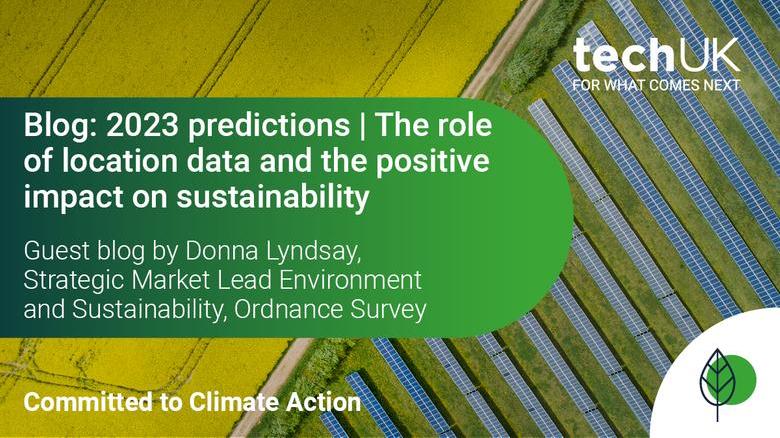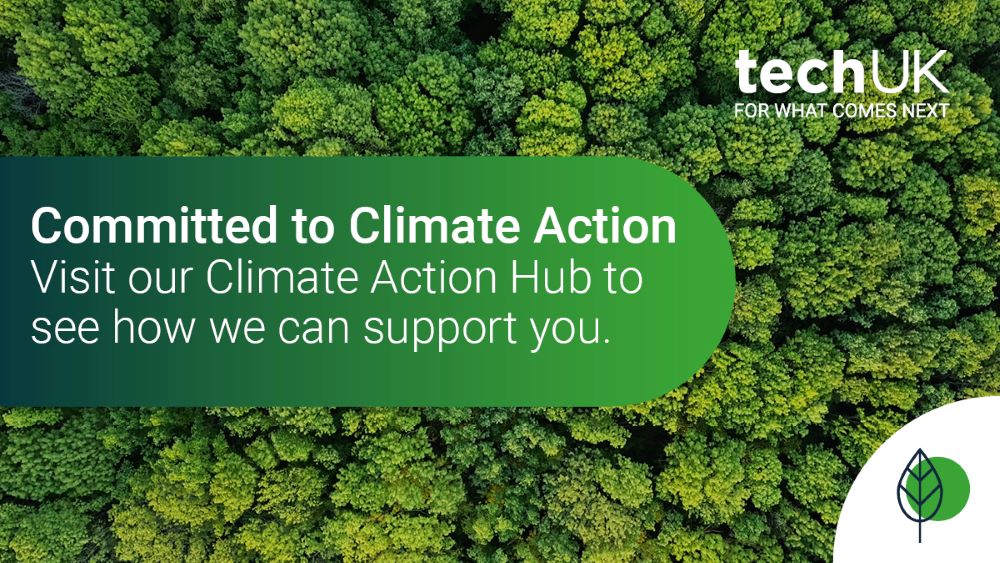2023 predictions - The role of location data and the positive impact on sustainability (Guest blog by Ordnance Survey)

In our ever-changing world, OS is committed to supporting customers across the globe with data driven insights to help tackle the global issue of climate change. Geospatial data can play a key role in identifying and adapting to the ongoing challenge, from detection and monitoring, and providing trusted analytics to help shape adaptation, modelling, and the implementation of viable solutions.
Today we are seeing location data supporting heat mapping projects, tackling supply chain issues, as well as enabling sustainable investment in green energy and transport for positive economic, social, and environmental outcomes.
To achieve net zero there needs to be authentic and authoritative data that is better regulated to enable better informed decisions. The biggest obstacle we face is how do we increase awareness and understanding around location data and the critical role it plays in providing insight and intelligence. For the next 12 months, I think we’re going to see greater emphasis from governments and businesses globally using authoritative location data at the core for monitoring, reporting and verification. Data quality is becoming essential in ensuring decision making but also enabling the transparency levels needed to remove green washing accusations.
Earth observation and geospatial data are both examples of data that can provide a remedy or treatment to solve this catastrophic global issue. The government has recently announced up to £200 million of funding to invest in Earth observation and climate programmes to prioritises our space and net zero ambitions as more than half of key climate data comes from space. At OS we recently announced that we have joined CGI’s research programme SEEDS and investigating the role that Earth observation can play in detecting sewage from space. On its own EO has no context but add a map and suddenly it has the context to shape change.
At the same time as climate change, the economy is expected to flatline in 2023 so we need to boost capital flow and green financing to stimulate growth. That’s why we need more sustainability initiatives like the Supply Chain Data Partnership, which aims to build a trusted data source to identify, prevent or mitigate risk, and identify opportunities for green and sustainable investment.
If a person is in intensive care, you need to be able to monitor them closely and trust the information so you can intervene and find the right treatment. With OS data, you can identify where the pain points are, enabling decisions and solutions for positive impact. If all the world leaders are looking on climate change as the intensive care patient, then they need better access to location data to make those informed decisions.
For more information visit Ordnance Survey
techUK – Committed to Climate Action
By 2030, digital technology can cut global emissions by 15%. Cloud computing, 5G, AI and IoT have the potential to support dramatic reductions in carbon emissions in sectors such as transport, agriculture, and manufacturing. techUK is working to foster the right policy framework and leadership so we can all play our part. For more information on how techUK can support you, please visit our Climate Action Hub and click ‘contact us’.



